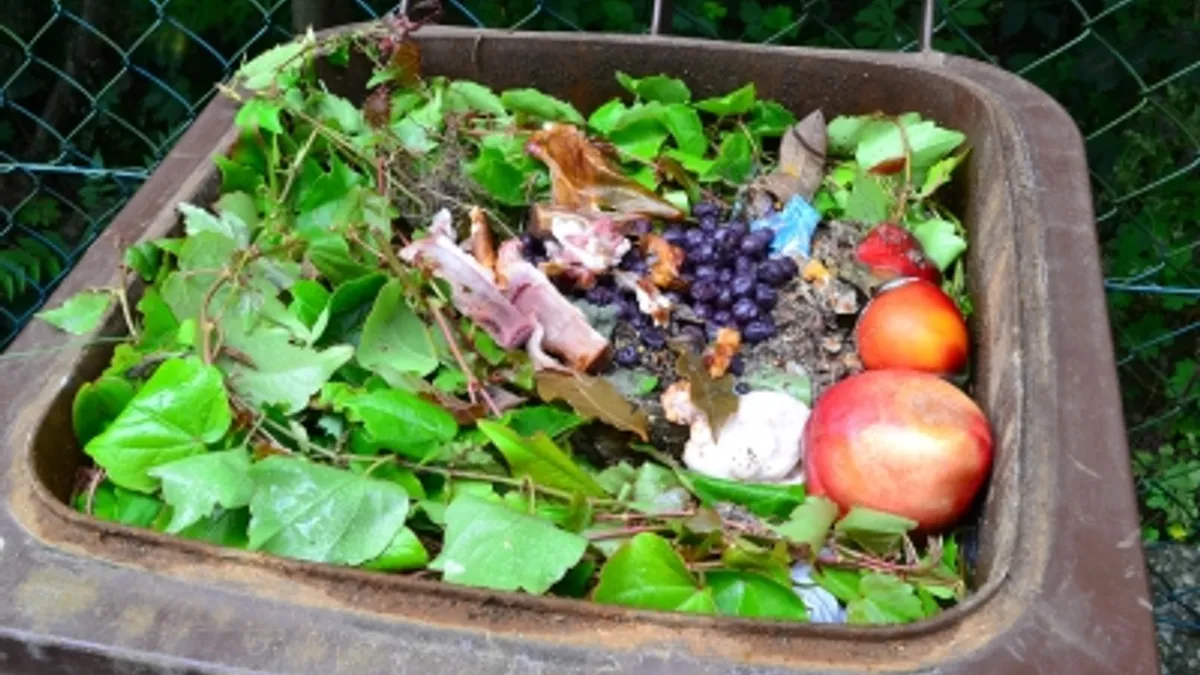Dive Brief:
- Without the necessary infrastructure in place to recycle food waste, it is increasingly difficult to mandate organics recycling and composting, as states are finding there is simply no facility to receive the materials.
- To combat the lack of equipment necessary to handle increased amounts of food waste, some state governments have stepped in, offering subsidies and grants to promote the construction of anaerobic digesters.
- Legislation is also underway in some states. For example, a bill awaiting approval in the Rhode Island House proposes that by 2016, facilities generating two or more tons of food waste should ship the leftover organics to a composting or anaerobic digestion plant if it is within 15 miles.
Dive Insight:
According to numbers released by the EPA, Americans disposed of 36 million tons of food waste in 2012 — and less than 5% of that was recycled. A poll conducted by the National Waste & Recycling Association reports that consumers are on board with separating food waste, but do not want to be charged more for its disposal.
As some states push for renewable energy to be offered by utility companies, food waste-to-energy projects could become a viable option, creating an additional revenue stream for this market. However, the anaerobic digesters that are in use nationwide process sewage and manure and are currently not equipped to handle food waste. Fortunately, companies are making progress toward building facilities capable of handling food waste, as states move forward with bans.














